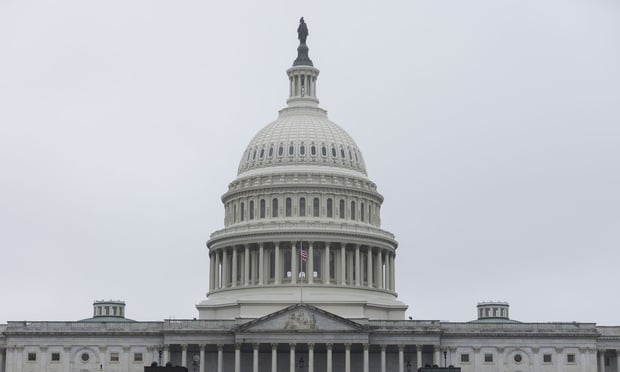 U.S. Capitol building in Washington. Photo: Diego M. Radzinschi/ALM
U.S. Capitol building in Washington. Photo: Diego M. Radzinschi/ALM
A new House bill could eliminate the Affordable Care Act employer health coverage mandate and also make many other changes in federal health insurance rules.
Rep. Pete Sessions, R-Texas, introduced a new version of the Health Care Fairness for All Act bill Tuesday.
Recommended For You
The new bill is identical to a bill Sessions introduced in May 2023.
Like the earlier version, the new version would adopt many changes that have been popular with Republicans without repealing either the entire Affordable Care Act or the ACA provisions that apply to major medical insurance.
Related: Top think tank posts 6-step health policy agenda
One section confirms that many of the most popular ACA rules, such as the current ban on medical underwriting, would stay in effect. But the bill would discourage people from waiting until they get sick to pay for coverage by letting plans charge a 20% late-enrollment penalty for people who enroll in new coverage without having had other coverage in place for at least 12 months.
Other provisions would support state efforts to create association health plans and endorse state use of high-risk pools to provide health coverage for high-risk individuals, according to a bill summary.
Roth HSAs: Another Sessions bill provision could replace the current health savings account system.
Today, taxpayers can deduct HSA contributions from taxable income. Taxpayers must use HSAs together with high-deductible health plans.
Sessions' bill would replace today's HSAs with "Roth HSAs," or HSAs that resemble Roth individual retirement accounts. Roth IRAs let people put after-tax income in their retirement accounts, and then pull cash out later in life without paying taxes on the distributions.
In Sessions' Roth HSA system, taxpayers would contribute after-tax income to their HSAs. In exchange for using after-tax income to fund the HSAs, they could combine the HSAs with ordinary, low-deductible health coverage.
Bill mechanics: Sessions serves on the House Oversight and Accountability Committee and the House Financial Services Committee.
His bill is under the jurisdiction of the House Energy and Commerce Committee, House Ways and Means Committee and House Education and the Workforce Committee.
The earlier version of Sessions' bill had six Republican cosponsors and died in committee.
The new version may have a chance to go farther, because Republicans sympathetic to Sessions' goals now control the House, the Senate and the White House.
One question will be how the administration of President Donald Trump would see an effort to change the current ACA framework.
Trump implied during a debate in September that he would like to replace the ACA major medical insurance rules.
But, at least for now, Trump's administration appears to be assuming that most ACA major medical insurance coverage rules and programs will continue to be in place for at least the next few years.
© 2025 ALM Global, LLC, All Rights Reserved. Request academic re-use from www.copyright.com. All other uses, submit a request to [email protected]. For more information visit Asset & Logo Licensing.







